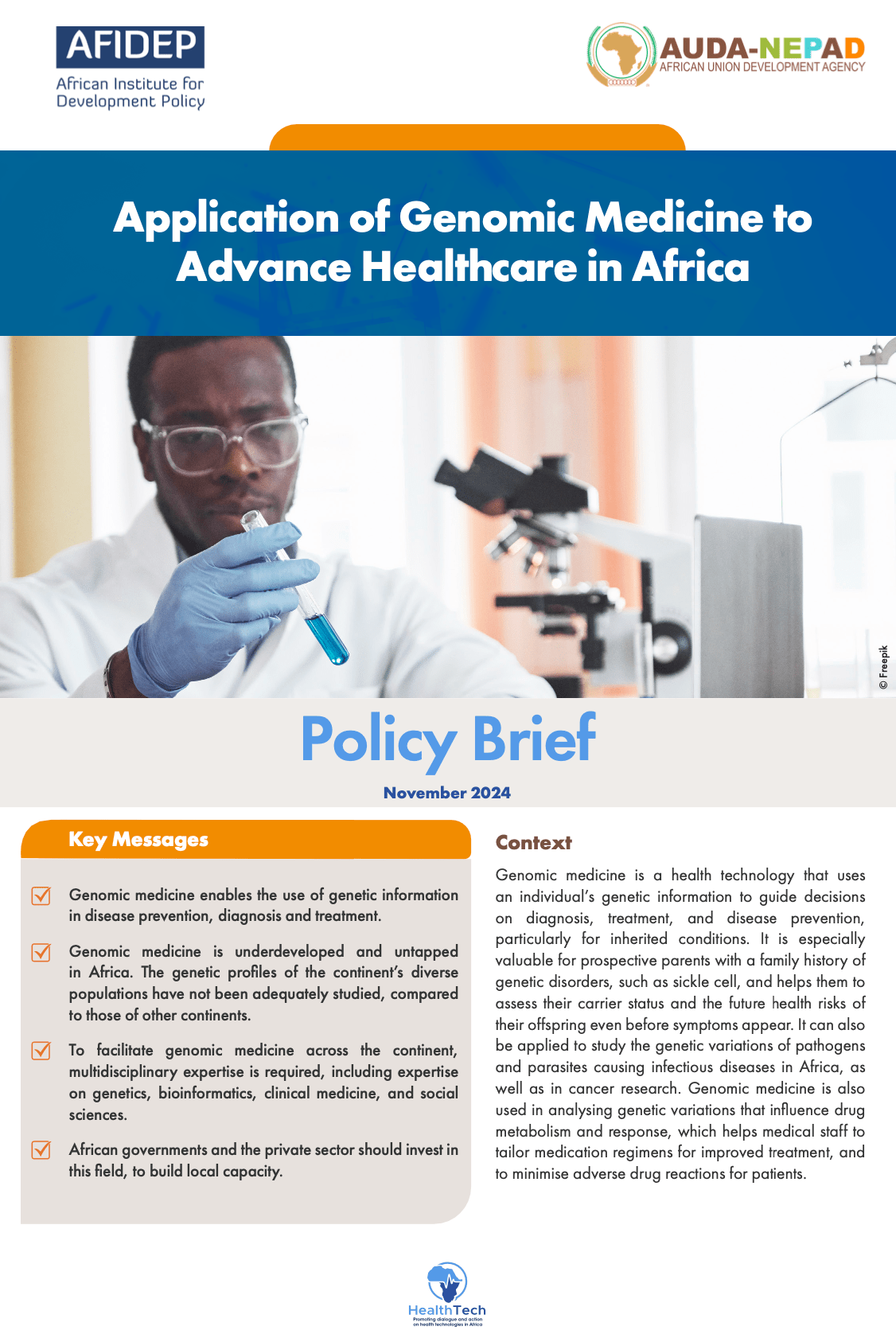Genomic medicine is an innovative field of healthcare that uses genetic information from an individual's genome to guide medical decisions, prevention, diagnosis and treatment of diseases. The human genome, which comprises all the genetic material (DNA) within an organism, contains the blueprint for building and maintaining human bodies.
Genomic medicine plays a pivotal role in identifying genetic predispositions to conditions and tailoring medical treatments, based on an individual’s unique genetic profile. For instance, it can determine if prospective parents are carriers of genetic disorders such as sickle cell, or predict susceptibility to inherited conditions before symptoms appear. By integrating genetic information with lifestyle and environmental factors, personalised genomic medicine aims to customise treatments to each patient's specific needs.
Benefits of Applying Genomic Medicine in Africa
- Personalised medicine – plans and medications tailored to individual patients for more effective treatment.
- Early detection of individuals at a higher risk for certain diseases so that mitigation and prevention interventions can be applied.
- More accurate and precise diagnosis for a wide range of diseases, leading to better treatment and disease management outcomes.
- Drug development, for more effective medications tailored to specific genetic profiles, leading to better treatment options for patients.
- Public health surveillance to track disease outbreaks, monitor the spread of infectious diseases, and inform public health prevention interventions
- Research and innovation, leading to new discoveries, treatments, and technologies that can benefit the public health system in Africa.
Examples of Practical Applications of Genomics in Africa
- The Cancer Genomics Group at the University of Cape Town in South explores the molecular profiles of cancers prevalent in the region through the Southern African Human Genome Programme.
- The African Centre of Excellence for Genomics of Infectious Diseases (ACEGID) at Redeemer's University in Nigeria is at the forefront of using genomic medicine to track diseases such as Lassa fever and Ebola.
- The Sickle Cell Disease Genomic Research Network in Ghana focuses on studying sickle cell disease’s genetic diversity and clinical outcomes
- The Centre for Research in Therapeutic Sciences (CREATES) at Strathmore University, Kenya, integrates pharmacogenomics into clinical practice.
- The Ethiopian Public Health Institute uses genomic medicine for surveillance and tracking drug-resistant tuberculosis strains.
- The Egyptian Human Genome Project aims to understand genetic predispositions to diseases like diabetes and cardiovascular conditions
- The Uganda Medical Informatics Centre (UMIC) studies the genomic basis of infectious diseases prevalent in the region, including malaria.
Policy Recommendations to Propel the Adoption of Genomic Medicine in Africa
To implement and scale up genomic medicine, countries in Africa need to address research and the related infrastructure, as well as regulatory and ethical challenges. Key recommendations include:
- Invest in genomic sequencing facilities and bioinformatics resources
- Develop and enforce regulations for genomic data management and privacy
- Support research through funding and collaborations
- Train healthcare professionals in genomics
- Engage with communities to ensure culturally sensitive and equitable implementation
- Collaborate with international partners to share expertise and best practices
By focusing on these areas, Africa can leverage genomic medicine to advance public health, improve outcomes, and achieve health equity across the continent.

